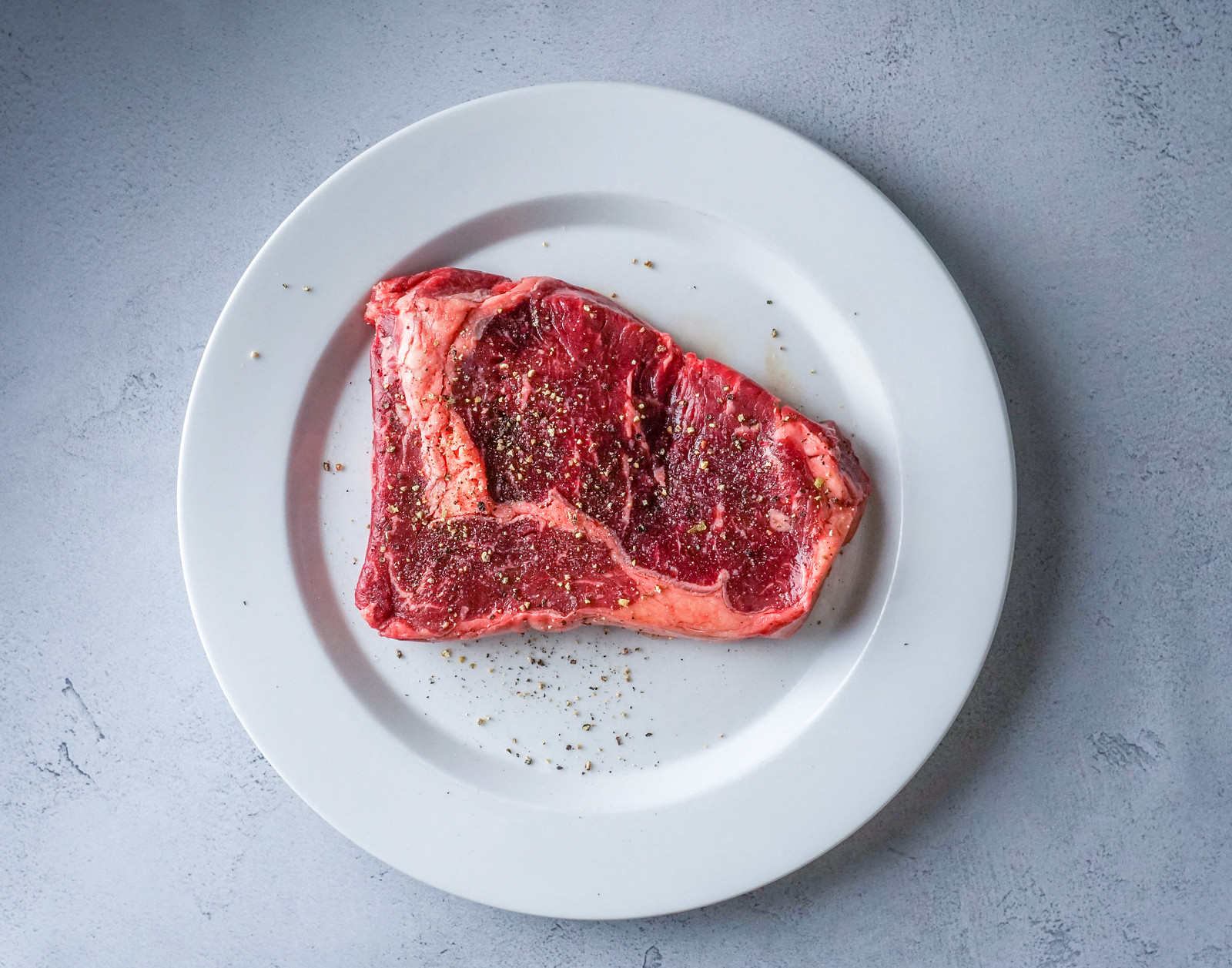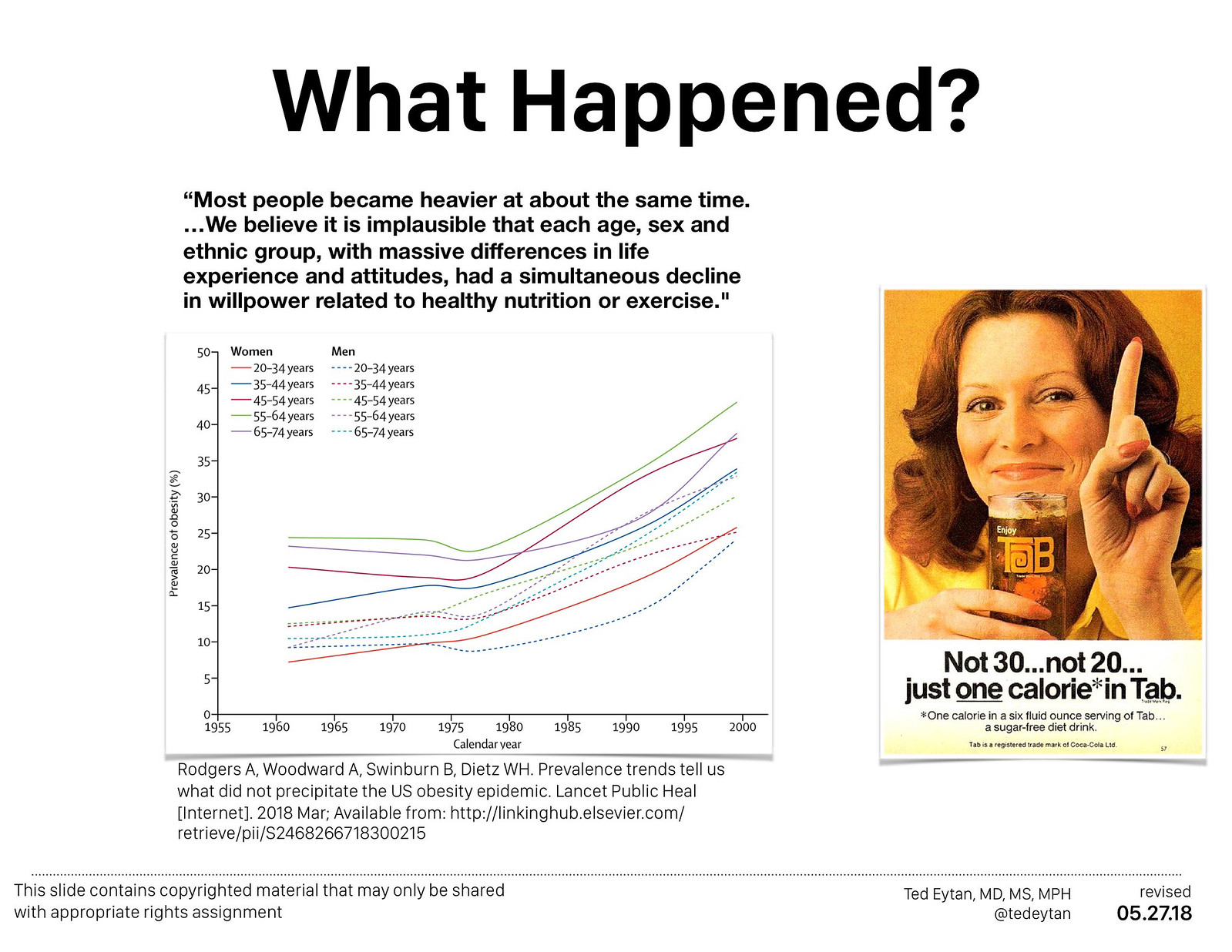
The most important part of this week’s published nutritional guideline recommendations – personal preferences and values are respected.
…other guidelines have paid little or no attention to the reasons people eat meat, and the extent to which they would choose to reduce meat consumption given small and uncertain health benefits. Indeed, no prior dietary guideline has attended with care to evidence bearing on values and preferences, and in particular has not conducted a systematic review addressing the issue.Johnston BC, Zeraatkar D, Han MA, Vernooij RWM, Valli C, Dib R El, et al. Unprocessed Red Meat and Processed Meat Consumption: Dietary Guideline Recommendations From the Nutritional Recommendations (NutriRECS) Consortium. Ann Intern Med [Internet]. [cited 2019 Sep 30];
Data shows numbers of vegans are not increasing, people are not switching their protein sources from animal to plant (both have gone up in the last 20 years), and omnivores are unwilling to reduce meat intake with unclear benefit and possibly harm.

Everyone is necessary
I have seen the assumption made that omnivores are exclusively unable/incapable of taking steps to improve the health of themselves or the health of our planet.
This idea sends the message to 94 – 97 % of the American population that they aren’t part of a/the solution to a global health crisis, likely associated with nutritional guidance.
The guideline panel’s assessment was based on the available evidence regarding values and preferences suggesting that the majority of individuals, when faced with a very small and uncertain absolute risk reduction in cardiometabolic and cancer outcomes, would choose to continue their current meat consumption. People considering a decrease in their meat consumption should be aware of this evidence.Johnston BC, Zeraatkar D, Han MA, Vernooij RWM, Valli C, Dib R El, et al. Unprocessed Red Meat and Processed Meat Consumption: Dietary Guideline Recommendations From the Nutritional Recommendations (NutriRECS) Consortium. Ann Intern Med [Internet]. [cited 2019 Sep 30];
The data from the papers indicates that they are taking steps beyond food source.

I have witnessed the medical profession attempting to force its values (and identities) onto the people it serves without a basis in science, many times. Failure rate of that approach: 💯.
Our patients expect us to be more focused on biochemistry than ideology, and we are here for them, not the other way around.
We’re also in the era of diabetes reversal, why don’t more doctors know?
About the steak
I did eat this grass fed, grass finished ribeye steak before this year’s Human Rights Campaign National Dinner (see: More Photos from the Future: 2019 Human Rights Campaign National Dinner, Washington, DC USA).
Depending on the way its produced, this food can be carbon neutral. Even if not, I’ll be posting on ways to offset carbon. It can be done. Healthy people, healthy planet – the two are inextricably linked.
Ultimately, nutrient density and metabolic health helps us help the 🌎 learn to ❤️ better, which is why we’re here.
Happy to answer any questions in the comments.
References
- Johnston BC, Zeraatkar D, Han MA, Vernooij RWM, Valli C, Dib R El, et al. Unprocessed Red Meat and Processed Meat Consumption: Dietary Guideline Recommendations From the Nutritional Recommendations (NutriRECS) Consortium. Ann Intern Med [Internet]. [cited 2019 Sep 30]; Available from: https://annals.org/aim/fullarticle/2752328/unprocessed-red-meat-processed-meat-consumption-dietary-guideline-recommendations-from
- Han MA, Zeraatkar D, Guyatt GH, Vernooij RWM, Dib R El, Zhang Y, et al. Reduction of Red and Processed Meat Intake and Cancer Mortality and Incidence: A Systematic Review and Meta-analysis of Cohort Studies. Ann Intern Med [Internet]. [cited 2019 Sep 30]; Available from: https://annals.org/aim/fullarticle/2752321/reduction-red-processed-meat-intake-cancer-mortality-incidence-systematic-review
- Zeraatkar D, Han MA, Guyatt GH, Vernooij RWM, Dib R El, Cheung K, et al. Red and Processed Meat Consumption and Risk for All-Cause Mortality and Cardiometabolic Outcomes: A Systematic Review and Meta-analysis of Cohort Studies. Ann Intern Med [Internet]. [cited 2019 Sep 30]; Available from: https://annals.org/aim/fullarticle/2752320/red-processed-meat-consumption-risk-all-cause-mortality-cardiometabolic-outcomes
- Vernooij RWM, Zeraatkar D, Han MA, Dib R El, Zworth M, Milio K, et al. Patterns of Red and Processed Meat Consumption and Risk for Cardiometabolic and Cancer Outcomes: A Systematic Review and Meta-analysis of Cohort Studies. Ann Intern Med [Internet]. [cited 2019 Sep 30]; Available from: https://annals.org/aim/fullarticle/2752327/patterns-red-processed-meat-consumption-risk-cardiometabolic-cancer-outcomes-systematic
- Valli C, Rabassa M, Johnston BC, Kuijpers R, Prokop-Dorner A, Zajac J, et al. Health-Related Values and Preferences Regarding Meat Consumption: A Mixed-Methods Systematic Review. Ann Intern Med [Internet]. [cited 2019 Sep 30]; Available from: https://annals.org/aim/fullarticle/2752323/health-related-values-preferences-regarding-meat-consumption-mixed-methods-systematic
- Zeraatkar D, Johnston BC, Bartoszko J, Cheung K, Bala MM, Valli C, et al. Effect of Lower Versus Higher Red Meat Intake on Cardiometabolic and Cancer Outcomes: A Systematic Review of Randomized Trials. Ann Intern Med [Internet]. [cited 2019 Sep 30]; Available from: https://annals.org/aim/fullarticle/2752326/effect-lower-versus-higher-red-meat-intake-cardiometabolic-cancer-outcomes
- Shan Z, Rehm CD, Rogers G, Ruan M, Wang DD, Hu FB, et al. Trends in Dietary Carbohydrate, Protein, and Fat Intake and Diet Quality Among US Adults, 1999-2016. JAMA [Internet]. 2019 Sep 24 [cited 2019 Sep 30];322(12):1178. Available from: https://jamanetwork.com/journals/jama/fullarticle/2751719
- Rodgers A, Woodward A, Swinburn B, Dietz WH. Prevalence trends tell us what did not precipitate the US obesity epidemic. Lancet Public Heal [Internet]. 2018 Mar; Available from: http://linkinghub.elsevier.com/retrieve/pii/S2468266718300215
- news.gallup.com/poll/238328/snapshot-few-americans-vegeta…
My disclosures
You can access them on this page. Short version: I have none.